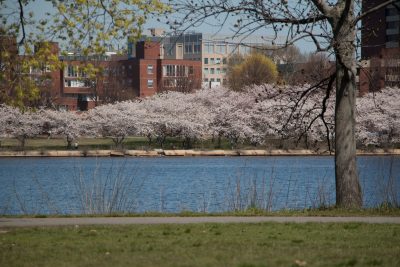The City of Cambridge has decided to remain in Step 1 of Phase 3 of reopening, despite some Massachusetts cities with similar COVID-19 rates moving into the next step Monday.

The Baker-Polito administration announced Sept. 29 that lower-risk communities — those that did not enter the “red” zone for cases of the virus in any of the state’s last three weekly Department of Public Health reports — could proceed with Step 2 of their Phase 3 reopening procedures starting Monday.
In Step 2, indoor performance venues can reopen, and both indoor and outdoor performance venues can reach 50 percent capacity. Gyms, museums and libraries can also increase their capacities to 50 percent.
The City of Cambridge, however, has decided to delay entering Step 2 out of concerns that reopening may contribute to an increase in the spread of COVID-19.
The Cambridge Commissioner of Public Health has determined that moving to Step 2 would cause coronavirus case rates to increase, presenting a “public health risk” for residents, according to a City press release.
Claude-Alix Jacob, director of the Cambridge Public Health Department, wrote in an email that the City’s decision was driven by several factors. While Cambridge has maintained a relatively low and stable infection rate, he wrote, cases have recently increased across the state.
“Cambridge has many people [traveling] in and out of the city every day from other Massachusetts communities,” Jacob wrote. “For a densely populated, destination city such as Cambridge, we need to pay attention to both local and statewide trends.”
The City’s concern about potential transmission through droplets or small particles indoors was another factor, Jacob wrote.
Before advancing, he wrote, the City plans to monitor the local infection rate as people spend more time indoors during the fall and K-12 schools start reopening for in-person learning.
“The Cambridge Public Health Department will continue to monitor infection rates locally and statewide,” Jacob wrote. “The city, at this time, does not have a specific timeline for moving to step 2.”
Denise Jillson, executive director of the Harvard Square Business Association, said she expected this decision.
“If you’re familiar with Cambridge, you know that we’re pretty autonomous and tend to make our own decisions about lots of things,” Jillson said. “This is not unprecedented. And, in fact, it’s pretty typical of Cambridge.”
She said that while the HSBA understands the pandemic has been posing challenges for businesses, it supports the City’s cautious approach.
Many locally owned small businesses are gradually recovering from the lockdown phase of the pandemic, Jillson said, because of their flexibility.
“The decision makers are right there in the store or in the restaurant,” Jillson said. “They can react much more quickly because they’re here on the ground.”
Jillson said that while businesses both large and small are hurting, she is impressed with how hard the businesses in Harvard Square have worked to stay afloat.
“The amount of respect that you had before for the businesses was one thing, but the respect is on overdrive,” Jillson said. “It’s been just astonishing to witness the creativity and the dedication going on. It’s impressive. It’s really impressive.”
Most local business owners have accepted the City’s decision, Jillson said.
“Maybe some would like a little less caution, but I haven’t heard that,” Jillson said. “Each business is taking this in stride and we’re all slogging through it.”
She said consumer confidence is a big factor for businesses in reopening.
“People have to feel comfortable and confident going into a restaurant and sitting down and eating,” Jillson said. “That’s just how it is. People have to be comfortable leaving their bubble.”


















































































































